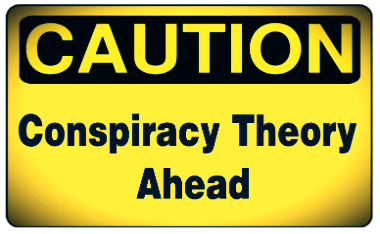Here is a portion of that WASHINGTON EXAMINER article Prager is reading from:
Friday marked Sebastian Gorka’s last day at the White House. Democrats, progressives, and even many Republicans cheered. The Federalist published his resignation letter, although anonymous White House officials told the New York Times and Washington Post that he had been fired. The truth might lie in the middle: Chief of Staff John Kelly’s reported decision to withdraw Gorka’s clearance led Gorka to resign. Alas, few if any reporters were self-aware enough to recognize the cognitive dissonance: How could they have reported for months that Gorka lacked a clearance when, indeed, he had one all along?
Regardless, there was no shortage of criticism about Gorka. These centered on three broad themes:
- Gorka was a right-wing extremist with ties to Neo-Nazi groups.
- Gorka was not a real terrorism expert.
- Gorka appeared on television too much.
Consider them in order:
First, the accusation that Gorka was a sympathizer with violent, fascist, Nazi-sympathizing groups in Hungary began when a left-wing blogger suggested that he wore a Vitezi Rend medal to the inaugural ball and that its display suggested ideological sympathy with neo-Nazis. Gorka responded to the accusation here. That the same blogger had earlier left the Center for American Progress under a cloud after Obama White House officials expressed concern at his and his colleagues’ use of anti-Semitic dog whistles in targeting Jewish policymakers, again, was an irony lost on those who seized upon the story uncritically.
The story grew when The Forward, a Jewish website and publication with socialist roots, purported to uncover a video affirming Gorka’s support for a Hungarian party subsequently accused of anti-Semitism. It subsequently emerged, however, that The Forward spliced the video to omit key portions in which Gorka warned against anti-Semitism or its flirting with anti-Semitic groups.
Here’s the key point: While many progressives and opponents of the regime accept with certainty that Gorka is a Nazi, a white nationalist, or an extremist, they have not been able to find a single statement or essay by Gorka or account of his speeches or comments supporting such positions. Given the volume of his previous writing, that should have been a red flag. The Nazi accusation is about as logical as concluding that a picture of Gorka absent his glasses represents a secret endorsement of the Khmer Rouge.
The situation gets worse: Three Democratic senators — Richard Blumenthal, Dick Durban, and Ben Cardin — have seized upon the calumny to suggest the Justice Department consider whether Gorka should have his citizenship revoked.
This sets a dangerous precedent. Politics in Washington are poisonous, with extremists on both sides of debates losing civility and seeking to criminalize policy debate. Donald Trump was guilty of that as a candidate, and Mike Flynn’s “lock her up” chants at the Republican National Convention were cringe-worthy, but threats to strip citizenship are a new low. Given the poison of dual loyalty accusations made by anti-Semites against Jews serving in public capacities, it is especially disturbing to hear Jewish-American senators seeming to use similar cards of insufficient loyalty to the United States against political opponents.
Second, what about the idea that Gorka was a non-expert? Long before Trump’s surprise rise to the presidency, I had the privilege of hearing Gorka lecture at the Marshall Center in Garmisch, Germany; to the FBI; at the U.S. Marine Corps University; and to U.S. Special Forces at Fort Bragg. To suggest that he was unknown is simply dishonest. Indeed, his lectures tended to receive rave reviews.
Here’s what many proponents of the ‘amateur’ argument miss: The same charges many critics level at Gorka could just as easily apply to any other counter-terror specialist. Daniel Benjamin, who served as counterterrorism coordinator at the State Department during the Obama administration and worked on counter-terrorism during the Clinton administration at the National Security Council, got his start as a Time Magazine reporter. Francis Townsend, whom Condoleezza Rice picked as her terrorism advisor, got her start as a prosecutor focusing on organized crime.
Many of the academics who criticized Gorka as out of his depth at certain academic conferences would have or have had their theories ridiculed by practitioners such as the FBI and U.S Special Forces as out of touch with reality. There is also a touch of jealousy: Gorka has a New York Times best-selling book; they did not.
Even during the Obama administration, counter-terror practitioners reached out to Gorka. ….
